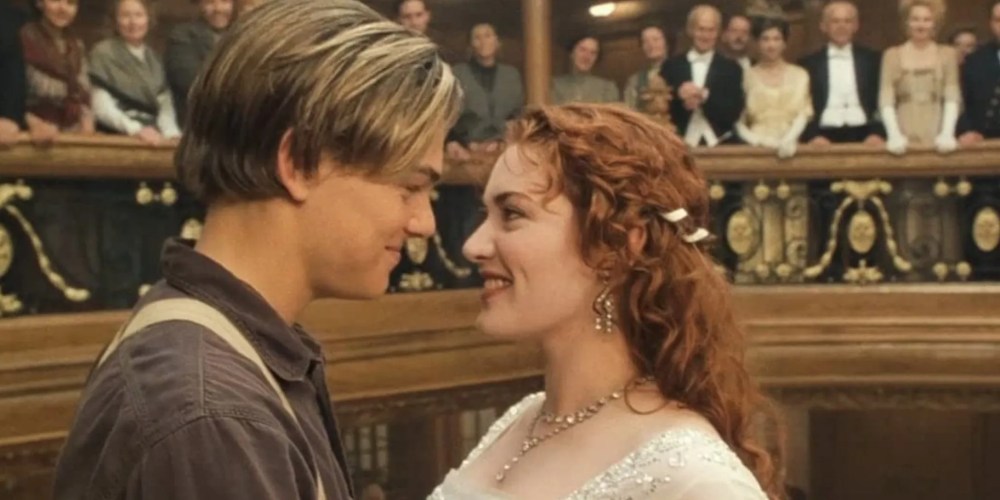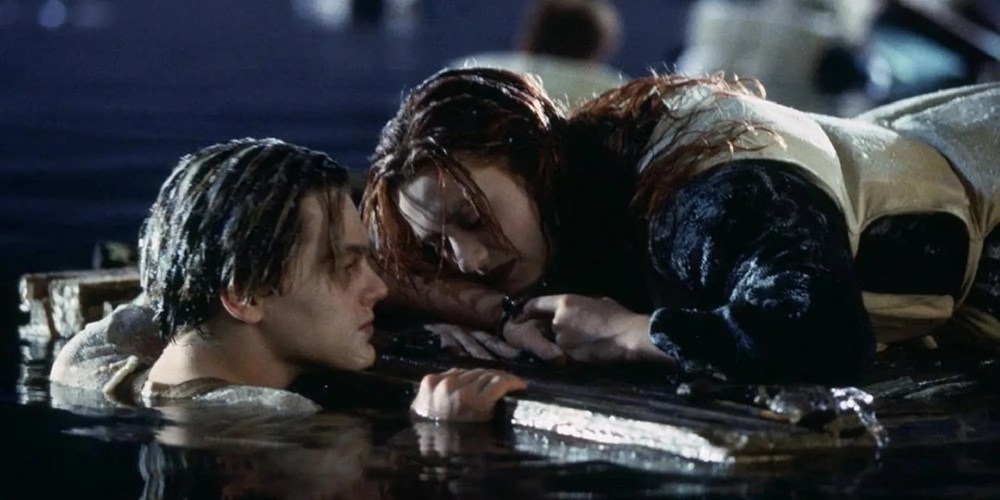Since Titanic debuted in theaters and changed the cinematic landscape forever, much ado was being made about the blockbuster’s tragic ending. Millions of moviegoers wept in their rickety movie theater chairs over the untimely death of Jack Dawson (Leonardo DiCaprio in his role as a career builder) and are still crying on their couches twenty-five years later despite knowing how james cameronThe historical epic comes to an end. At the other end of the spectrum, a particularly zealous quarter of the internet tried to scientifically debunk The Door: they argued that Jack didn’t need to die because he and Rose (Oscar winner Kate Winsletescape role) could have fit on the floating wreckage. It’s a debate that has produced some really great memes and even a viral Mythbusters episode, and it’s certainly harmless fun on the surface. However, as such things go with online discourse, leveraging The Door’s cultural infamy as a legitimate review of the film demonstrates a fundamental misunderstanding of Titanicthe thesis. Jack Dawson was always destined to die. In fact, he had to, because without his sacrifice, this 195-minute, $200 million-budget movie is pointless.
‘Titanic’ makes history real again
As someone who has always been fascinated by shipwrecks, Cameron’s initial priority was to visit the remains of the real RMS Titanic: creating a fictional version for the screen was just an excuse to see the mother of all shipwrecks in person. However, having achieved this goal, Cameron was humbled and felt “a great responsibility” to capture the true extent of the horror behind the legendary disaster. According to the writer-director, “It wasn’t just a story, it wasn’t just a drama; it was a real event that happened to real people who really died.” This devotion was manifested in his commitment to recreating the ship impeccably in nearly full scale and detail, with sinking time calculated to the nearest second, and it is the same reason he centered a love story at the heart of his film: giving a human face to history.
Of the approximately 2,200 passengers on the Titanic, more than 1,500 lost their lives due to human hubris and intentional cruelty. The lack of sufficient lifeboats is common knowledge at this point, as are the worrying claims of the vessel as “unsinkable”. At that time, the Titanic was a catastrophe of incalculable proportions and entirely avoidable with only a few modifications. Those who did not die during the sinking were left by their fellow travelers to freeze to death in the incredibly cold waters of the North Atlantic.
As empathetic as any individual strives to be, it’s all too easy to see even the worst historical events through the prism of the detached complacency offered to us by time and distance. This perspective is what Cameron sought to correct, and he corrected it without flinching. But before the catastrophe unfolds in the film, the audience had to worry about the fate of the characters. It’s Cinema 101. One of the most effective ways to keep viewers engaged is through conflict, and TitanicThe screenplay went back to basics by establishing a triple drama between its two protagonists. Rose, an heiress who seems to lack for nothing, seeks freedom from her abusive circumstances; Jack, a penniless orphan of seemingly no intellectual consequence, craves adventure. Combining their two desperate situations with a star-crossed lovers dynamic was a genuine way to get moviegoers to root for them. While Cameron probably never intended to shake up tropes or write the wittiest script imaginable, he instead ruthlessly used tropes for all they were worth, and then some. Cameron further accentuated this emotional ploy by casting actors who reminded him Audrey Hepburn and Jimmy Stewartsome of the most charismatic and endearing icons of classic Hollywood.
Not only is the concept of a forbidden romance as old as time immemorial, but so is the loss of half of said couple in tragic circumstances (or both halves – just ask Shakespeare). Jack’s death fulfills that requirement but is much more than a lazy attempt to bring moviegoers to tears. His sacrificial love for Rose is a microcosmic reflection of Cameron’s entire motive and underscores all that makes Titanic a terribly poignant film.
In ‘Titanic’, Rose’s life is torture until she meets Jack
As a protagonist and point-of-view character, Rose is a teenage girl caught in a daily cycle of horror: her mother treats her a little better than she would a family heirloom to sell in exchange for finding their old financial situation. Her fiancé, Caledon Hockley (Billy Zane), is a much older man, as narcissistic and selfish as can be, who has sexually assaulted Rose on several occasions and exhibits an obsessive need to control her after the slightest suggestion of another man’s self-interest. He does this first by spying on her, followed by verbal abuse and physical intimidation. Rose’s life is such torture that the image she presents of a fine upper-class lady doubles as an isolating shell of self-preservation; what meager protection she has, that is. And Titanic’s maiden voyage represents the final push toward her inescapable future as Cal’s wife. She intends to kill herself before Jack speaks to her from the back of the ship, as that seems to be the only outlet available.
It’s Jack’s influence that gives Rose a different picture of the world: one as vivid and heartfelt as her sketches, chock-full of potential. And as a boy with no parents and no money to his name, Jack’s situation is usually associated with a discouraged worldview. Instead, he hands Rose the key to his chains simply by showing his insight and compassion. Rose experiencing selfless love for the first time inspires her to assert her independence and fight for freedom instead of surrendering to the despair that once claimed her, and though Jack serves as a catalyst, Rose must make the choice. The movie doesn’t even tiptoe around it; Jack directly states that only Rose can save herself, and this is a fact never more evident than after Jack’s death. The only days old Rose could have died in the freezing water, but this one recognizes the precious value of life. There’s so much beauty left in the world to be seen, isn’t there?
Later in the film, when the camera pans over the collection of framed photos by Old Rose’s bedside, showing the extremely full life she has grasped with both hands, the audience understands the importance of existence human and how much Rose would have lost joy under different circumstances. Central to Cameron’s story is the triumphant message of living life without regret or hesitation, and never forgetting that every human life has consequences. Without the real stakes and the real costs highlighted by the death of Jack, the survival of Rose and Titanicthe core would have no real resonance.
Rose survived when thousands aboard the Titanic didn’t stand a chance
Rose’s life also reflects the reality of what chance so cruelly took from the thousands of people who perished in the sinking of the Titanic. The ocean was an indiscriminate killer, taking away the young, the old, the kind and the cruel, the poor and the rich, but every person on this dream ship had potential, meaning and value. All had lost dreams. Most of us know that neither happiness nor longevity of life is promised; no one knows how many these days. Jack surely didn’t, but he nonetheless jumped into the unknown and considered any cost worth it as he made the most of his time with Rose. His actions and those of Rose lead by example.
Another layer is how a male love willingly giving his life in nonviolent sacrifice remains radical even in 2022. Jack never rushes to shoot a gun or hit Cal as a show of machismo. It doesn’t come out in a burst of glory that history can’t help but record. Instead, Jack walks by quietly, giving just enough speech to ensure that Rose will keep fighting tooth and nail. No one remembers her name except the one that matters most, and she commemorates it as her own, a constant reminder and symbol of her survival.
But James Cameron saw Titanic like a love story against a backdrop of historical events. And it all comes back to The Door. A Titanic where Jack survives is a Titanic meaningless and betraying its own intention. How unrealistic, convenient for the plot, and insulting for the reality. In a historic situation where many have succumbed to selfish cruelty trying to survive and just as many have given their lives alongside or in place of their loved ones, the death of Jack Dawson is the key substance in of the titanic show.
Titanic is meaningless without Jack’s death – CNET – ApparelGeek


